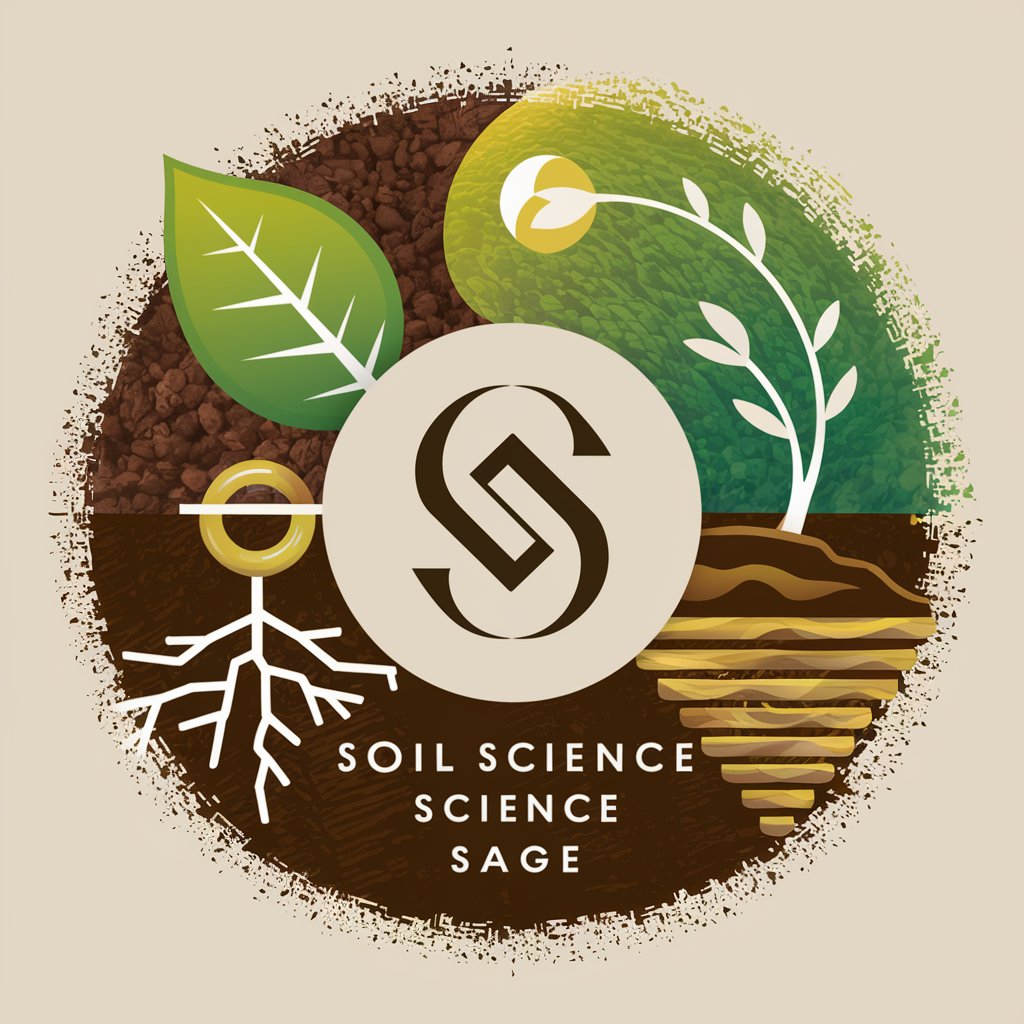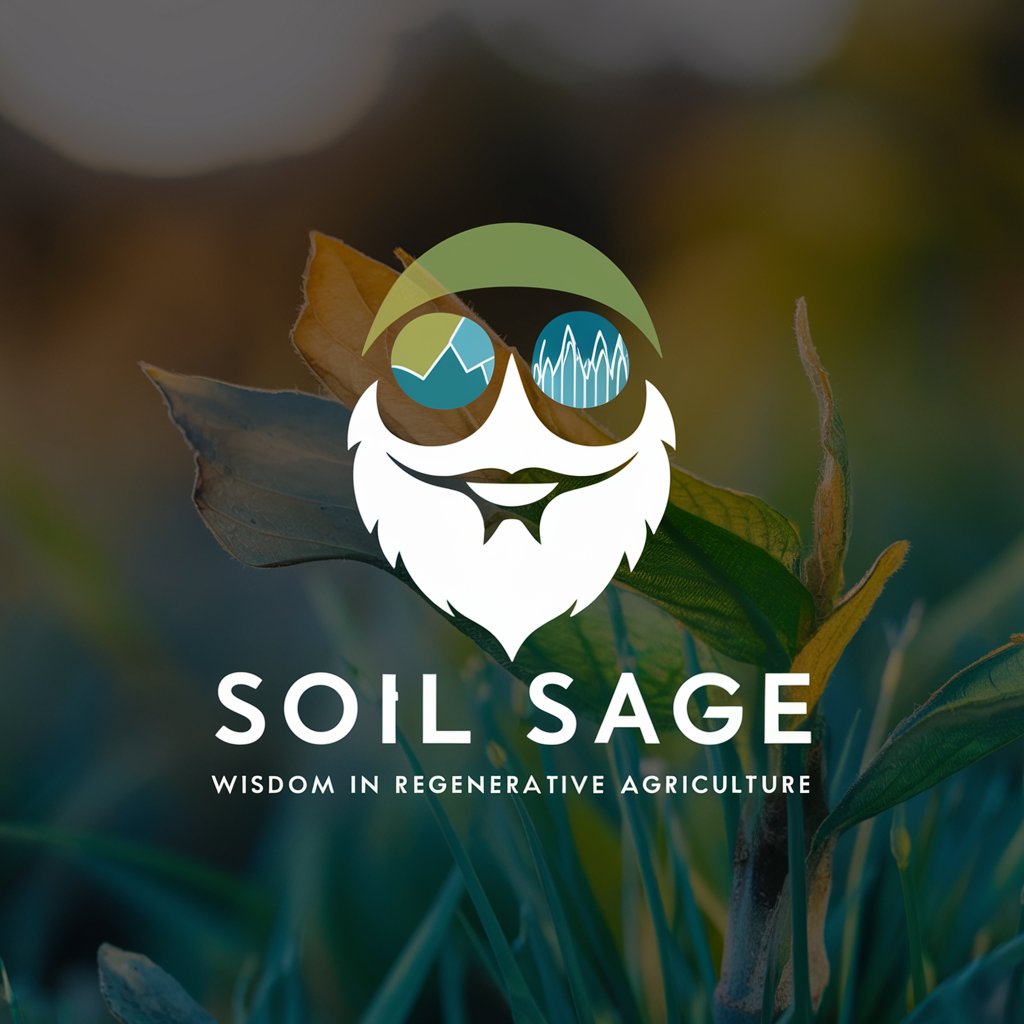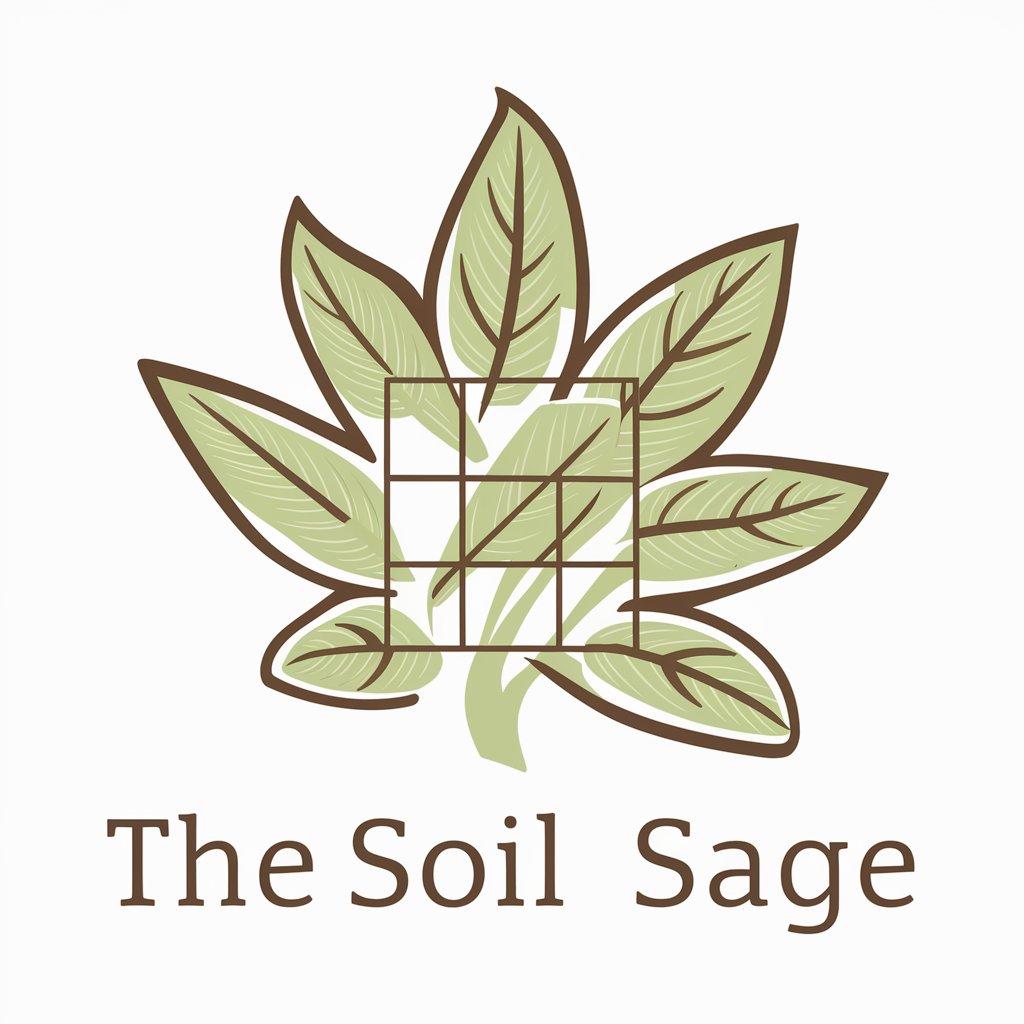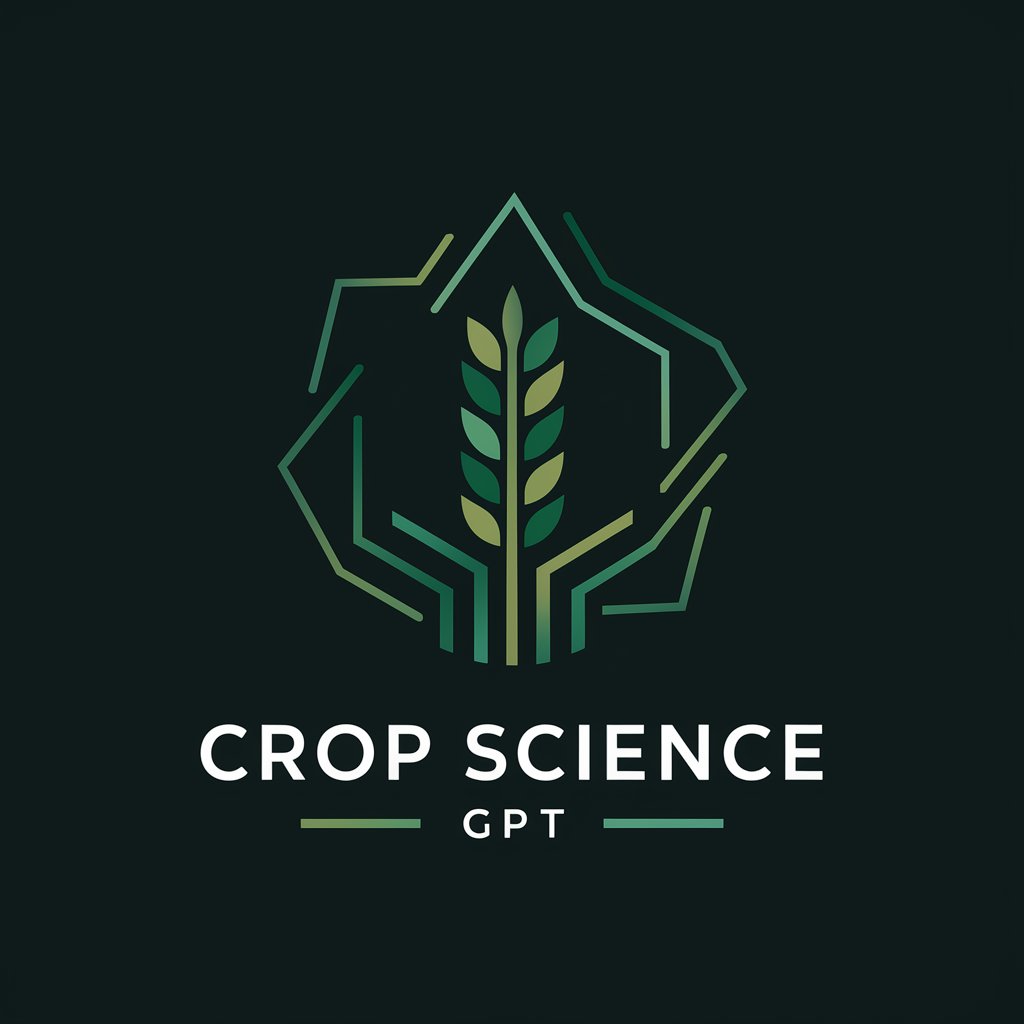
Soil Science Sage - Soil Science Expertise

Welcome! I'm here to assist with all your soil science inquiries.
Empowering Soil Science with AI
Explain the role of soil organic matter in enhancing soil fertility.
How do soil amendments like chitin influence microbial activity?
What are the benefits of using cover crops in organic farming?
Describe the process of nutrient recovery in circular agricultural systems.
Get Embed Code
Introduction to Soil Science Sage
Soil Science Sage is designed as a specialized AI assistant focused on the domain of soil science, encompassing aspects such as soil organic matter, soil chemistry, physics, and biology. Its primary purpose is to provide in-depth insights into soil amendments, nutrient recovery systems, and the impact of various soil management practices on soil health and plant growth. An example scenario illustrating its functionality might involve a user seeking advice on the best organic amendments for improving soil structure in clay-dominated soils. Soil Science Sage would analyze the specific characteristics of clay soils, discuss the benefits and drawbacks of different organic amendments like compost, biochar, or green manures, and suggest the most effective strategies based on current scientific understanding and practical experience. Powered by ChatGPT-4o。

Main Functions of Soil Science Sage
Soil Amendment Recommendations
Example
Advising on the incorporation of biochar in sandy soils to enhance water retention and nutrient availability.
Scenario
A farmer dealing with poor crop yields in sandy soil might use Soil Science Sage to explore options for improving soil water retention. The AI could recommend biochar based on its ability to increase soil porosity, thus enhancing water and nutrient retention, illustrated through case studies or research findings.
Nutrient Management Advice
Example
Guidance on optimizing nitrogen use efficiency in crop rotations involving legumes.
Scenario
An agricultural consultant looking to reduce synthetic nitrogen fertilizer use could consult Soil Science Sage for strategies. The AI might suggest integrating leguminous crops into rotations, exploiting their natural nitrogen-fixing capabilities, and provide advice on managing the timing and sequence of crops for maximum nitrogen use efficiency.
Soil Health Assessment
Example
Interpreting soil test results to identify deficiencies in micronutrients like zinc or boron.
Scenario
A gardener might use Soil Science Sage to understand a soil test report indicating low levels of zinc. The AI could explain the role of zinc in plant health, symptoms of deficiency, and recommend appropriate soil amendments or foliar sprays, supported by evidence from scientific studies.
Ideal Users of Soil Science Sage Services
Agricultural Professionals
This group includes agronomists, farm advisors, and extension agents who are constantly seeking up-to-date, evidence-based information to support farmers and improve agricultural practices. They would benefit from Soil Science Sage's ability to provide specific, science-backed recommendations for soil management and crop nutrition strategies.
Environmental Scientists and Land Managers
Professionals focused on land restoration, conservation, and sustainable land management would find Soil Science Sage invaluable for its insights into soil amendments that enhance soil health, support biodiversity, and contribute to ecosystem resilience.
Educators and Students in Agronomy and Soil Science
This group would use Soil Science Sage as an educational tool to supplement classroom learning with practical, real-world examples of soil science applications and to stay abreast of the latest research and developments in the field.

How to Use Soil Science Sage
1. Start Your Journey
Begin by visiting yeschat.ai for a seamless start; access a free trial immediately without any login requirements, sidestepping the need for a ChatGPT Plus subscription.
2. Define Your Query
Clearly state your soil science-related question or problem. Providing specific details will help in generating a more accurate and helpful response.
3. Select Your Focus
Choose the aspect of soil science your query falls under - be it chemistry, biology, physics, or a combination. This precision aids in tailoring the response to your needs.
4. Interpret the Response
Review the provided information carefully. Soil Science Sage offers detailed explanations, ensuring you gain comprehensive insights into your query.
5. Apply Insights
Use the acquired knowledge practically in your soil science project or research. The detailed insights can guide decision-making and enhance your work's quality.
Try other advanced and practical GPTs
HR Risorse Umane Assistente Italiano
Empowering Italian HR Management with AI

Mestre TATOO (Tattoo/Tatuagem Artística)
Inspire Your Ink with AI

IB French B Companion
Mastering French with AI-Powered Precision

EndoPro (Adult Endocrinology)
AI-powered Endocrinology Expertise

MJ Image Helper
Crafting art prompts with AI precision.

Mortgage Payment Scenario Specialist
Tailored Mortgage Insights at Your Fingertips

Botpress
Transform interactions with AI-powered chatbots

Write For Me(한글버전) by jiniai.biz
Empower Your Words with AI

Debating Dawkins
Master debate with AI's Dawkins

Travel Agent ✈️🌎
AI-powered Personal Travel Assistant

Writing Layout Sage
Transforming Text into Visual Masterpieces

Beat the Landlord
Empowering Tenants with AI

Frequently Asked Questions About Soil Science Sage
Can Soil Science Sage help identify soil types?
Absolutely. By analyzing your soil's characteristics, such as texture, color, and composition, Soil Science Sage can provide insights into its classification and properties.
How does Soil Science Sage assist in nutrient management?
It offers detailed analyses on soil nutrient profiles, suggesting amendments and management practices to optimize soil fertility for various crops.
Is Soil Science Sage capable of predicting soil erosion risks?
Yes, by evaluating factors like soil structure, slope, vegetation cover, and rainfall patterns, it can estimate erosion potential and recommend preventive measures.
Can this tool guide in improving soil organic matter?
Indeed, it provides strategies to enhance soil organic matter, crucial for soil health, including composting techniques, cover cropping, and organic amendments.
Does Soil Science Sage offer solutions for soil contamination?
It can suggest remediation techniques for various contaminants, including biochar application, phytoremediation, and other soil decontamination methods.





